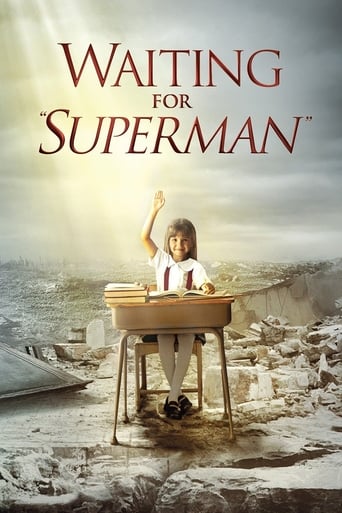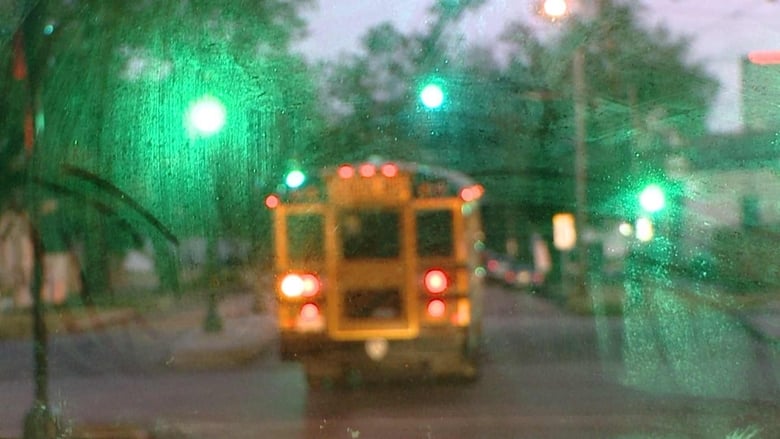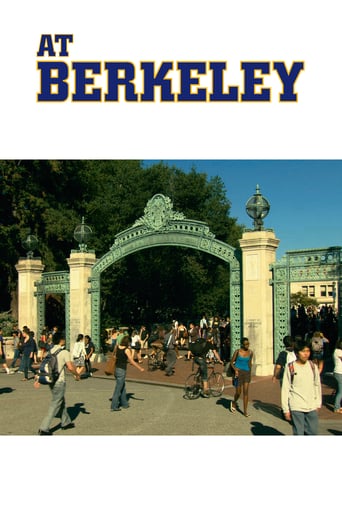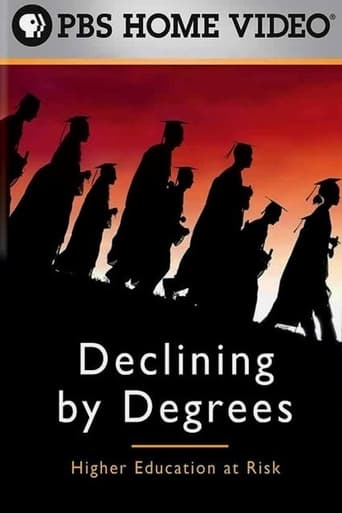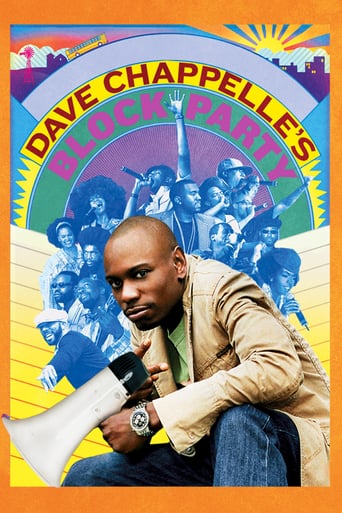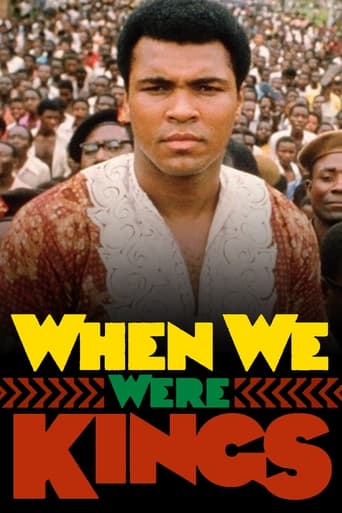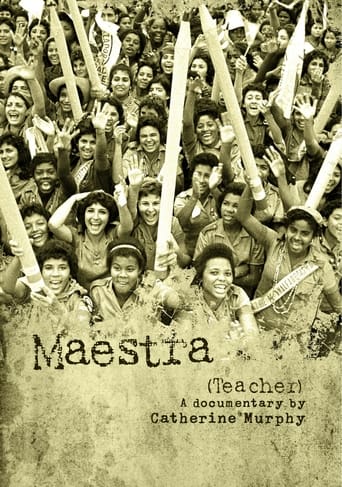Waiting for "Superman" (2010)
Gripping, heartbreaking, and ultimately hopeful, Waiting for Superman is an impassioned indictment of the American school system from An Inconvenient Truth director Davis Guggenheim.
Watch Trailer
Cast
Similar titles
Reviews
Instant Favorite.
It's easily one of the freshest, sharpest and most enjoyable films of this year.
The story, direction, characters, and writing/dialogue is akin to taking a tranquilizer shot to the neck, but everything else was so well done.
The movie really just wants to entertain people.
"No child left behind" is a line that many have heard constantly when referring to public education. However, when looking at the failure rates in many inner-city schools, it is visible that many children are being left behind. In the documentary directed by Davis Guggenheim , "Waiting For Superman," the question who is to blame and what can be done is raised as they follow the course of a couple of children who are trying to enter a charter school via a lottery. Although he failed to show the public school teachers side of the story, the director made a very strong and effective argument against the public schools system through the use of statistics, appeal to emotion, and call for action, but not so much for charter schools.According to Guggenheim, a part of the issue is the public school system itself and its web of "power". Every district has its own set of rules and standard apart from the ones nationally enforced. In the film this was explain quite simply. If a student fails a test in one district's school, that same test may still be a passing grade in another district. Every school district can have different standards and that can really cause problems. If all schools do not have the same standards then that only leaves gaps in the children's education when the move on into higher education such as high school and college. Equal education for everybody is one of the main points of the film. Children in low income communities are not receive equal education when compared to children in wealthier places, such as the suburbs. By following this handful of low-income students in the road to attempting to escape this system and move into a charter school, the director appeals the audience's emotion. They are showing small, innocent children who have big hopes and dreams for the future go through the struggle of having to attend "failure factories", as they are referred to in the film, and face the inequality of education. Additionally, Guggenheim goes on to blame teachers and the teacher unions as the biggest reasons to the failure of public schools. It is stated in the film that there are great teacher, but there are also some very terrible ones and unfortunately these bad teacher cannot be fired as easily. According to statistics given in the documentary, some teacher are covering only 50% of the required material while other teachers covering up to 150% of the material and yet they get paid the same. The reason is simple: the teacher union. According to the contracts in the union, schools are not allowed to make pay distinctions among the teachers for being "better" teachers. What is even worst is the fact that due to the tenure teachers have the terrible teachers cannot be fired. Teachers who are failing to do their jobs correctly are being kept in these schools and continue to take opportunities away from their students. Charter schools are in a way offered by the director as a type of solution to the flaws in the education system. All throughout the film, charter schools are spoken pretty highly of and the whole film revolves around a group of children who are so desperately attempting to be enrolled into a charter school through a random selection. Slowly but surely, charter school are getting more attention do their "high success rate" more parents want their children enrolled. The director makes sure to put these types of public schools that are independently run as great institutions where there are greater success rates and where children are coming out better prepared for what lies ahead, but, and here is the huge but, it was mentioned in the documentary that only 1 out of 5 charter schools are producing these outstanding results. It was mentioned so fast in the film that people could have easily missed it. Four fifths of charter schools are also not providing the results that are needed for change. The director failed to acknowledge the reasons as to why these independently run schools are failing and that is a tremendous flaw in his argument pro charter schools. If these charter schools were really the solution then why are only very few of them actually succeeding?The documentary itself is a demand for action.There is a particular quote in the film that states that great school will not come from lotteries done by charter schools are by Superman. Great schools will come from us, the people. If the people are willing to voice their opinion on the terrible education the children are receiving then there can be changes to the system. People need to voice their opinion against the unequal power web and the inability to fire teachers who are not doing their jobs. The power for the change lies in the hands of the community, they need to make their voices heard for the greater good. The solution may not be charter schools, but there is still hope. According the film, in order to begin the process of restoring the public education system there is a need for, "quality teacher, more class time, world class standards, high expectations, real accountability " (Guggenheim, "Waiting for 'Superman' (2010)") It all boils down to teacher have to be the very best, people have to be willing for change, communities have to commit to the schools, and the people must be willing to act.The documentary, "Waiting For Superman," told a very the very compelling stories of a group of students attempting to escape the flawed public education system while also underlining the issues in the system and why it is not succeeding. The director blames the different standard in every district and also the teachers. Through the use of data, emotion, and a call for action, the documentary "Waiting For Superman" had a powerful and effective message.Work cited Waiting for 'Superman' (2010) (Motion picture). (2011). Paramount Pictures.
Waiting For Superman is a documentary by Davis Guggenheim. This documentary focuses on schools throughout America and the students within them. Parents in the film grow tired of the lack of success within these schools. Students continue to fail and drop out of high school. Officials blame the failing schools on the surrounding failing neighborhoods. It was soon revealed that it was indeed the schools that were failing the children and causing so much chaos within the neighborhoods they were in. Schools should be the number one priority in America because students make tomorrow, yet schools were continuing to fail these innocent kids. This documentary focuses on the lack of help schools have on children trying to learn. Children are ready to learn, yet schools have not yet figured out a system to help them succeed. Public schools are not doing enough to educate the children and prepare them for college. Without college, as proposed in the movie, these children will have a slight chance at a successful future. As Geoffrey Canada stated, schools in low-income areas suffer the consequences of failing public schools because these children turn to gangs and crime. Without education, these children will most likely end up in prison. As stated in the movie, it costs more money to take care of in a inmate rather send multiple students to a private school. Children in minority neighborhoods need more help in education because they suffer the most when it comes to statistics. African Americans and Latino Americans are the people who fill prisons in America. Without a push in education, these children will continue to fill statistics. Public schools fail students because the teachers aren't fit for such job qualifications. Because the teachers in public schools are protected by the ten-year plan, it makes it so much more difficult to fire the teachers lacking to educate students to solve the problem. The chances of firing a teacher in public schools are such a low percent. Students need teachers to do their job to learn; yet teachers feel they can do as they please as long as such rights protect them. Michelle Rhee tried to help the education system by tempering with the 10-year policy, but these teachers were not for such a change. She soon realized these adults were for themselves and not the children. Public school teachers can range from great teachers to horrible teachers. The difference in a teacher can have a student a grade level above normal or a grade level behind. Children hold their faiths in teachers because they hold their futures within their teaching lessons. When a teacher fails a student, that student will most likely lose interest in schools and drop out. Public schools are neighborhood schools anyone can be accepted into if they live in the district. Depending on the area, these schools can show excellent results or unbearable results. It is unfair and injustice for a parent to send their child to a horrible school because it is the only school in the neighborhood. There are other options for parents like military schools or private schools. The only conflict is the cost to send children to these schools when majority of the parents are struggling living in urban cities. All public schools should be performing at amazing rates for every child to have a chance to succeed in life. A school should not have a better academic program because it is located in a better neighborhood. Suburban schools may have better buildings and nice athletic fields, but they are performed no better than urban schools. These schools lack great results. They don't have high drop out rates like urban cities, but they do not provide better scholars. These students graduate to have regular jobs like managers or lawyers. America needs more students in science and mathematics fields. To solve the problem of public schools, charter schools were introduced into America. These schools were publicly funded but had their own rules. These schools had such a different system from public schools. Charter schools had different teachers because they actually wanted to be there to help children learn. These schools have so much more help and patience for students. They have longer school days so students can learn more and have time to talk to teachers. These qualities help students learn so much more that make charter schools provide at a higher level than public schools. The only disadvantage of charter schools is the space they have for students; space is limited for only a few spots a year. Parents struggle for the luck they need to get their children in these charter schools As parents attend these raffles for their children, they watch as balls with numbers on them spin or a pile of cards with names on them waiting for their child's name. Charter schools may be a new way for children to have a chance at receiving a good education, but they shouldn't have to rely on a raffle done with their names on them. Public schools need to realize they aren't helping America out by failing thousands of children every year. Drastic changes need to be made by people in power to get new teachers who want to help children and not teachers who look forward to a check every week. Its injustice for children to rely on money or luck to get an education that can put them in college. College shouldn't be so hard to achieve for children because college is what every child needs. School should be a priority in everyone's eyes in America because education is a huge deficit. Other countries continue to provide better results in mathematics and science. Foreign people come to America to do jobs Americans cant. This shows the lack of education America has. Change is needed to help this crisis. Work Cited 1. Waiting For 'Superman'. Davis Guggenheim. 2010. Film.
America's children are in danger; not physically but intellectually. We've all heard about the statistics: students dropping out, falling behind on math and science test scores compared to other countries, and many schools closing because they lack funding. Davis Guggenheim, documentary filmmaker of Waiting for 'Superman', investigates the ways in which the American public education system is failing our children. Along with his investigation, he has explored a recently new type of school that has improved many children's ability to learn; charter schools. Specifically, the documentary follows five students with different dreams and hopes of being lucky enough to get picked at a lottery. This lottery ticket is a pass to a better performing school that will increase their chances of graduating and becoming better prepared for college. 'Superman' has the power to open the viewer's eyes to a systems that is putting children's entire future at stake depending on a ball that falls through a hole. Guggenheim explores possible ways in his film to improve America's public education before it is too late. Throughout the film, Anthony, Daisy, Francisco, Bianca, and Emily are portrayed as victims of these failing school systems. Along with these students are their families with different socioeconomic backgrounds which have faith and hope that their child will be "lucky" enough to be one of the numbers that are picked randomly at the lottery. By winning the lottery, a spot at a charter or magnet school will increase their chances of them graduating high school compared to the dropout factories they are in now and therefore making it to college. But these children's desire and hope for their future should not be determined by a lottery. Every child deserves a future that they seek and look forward to; not something that may not even be tangible. One of Guggenheim's main argument throughout the documentary is that it has become impossible to fire a teacher in the public education system once they've become tenure after teaching just for two years. The bigger problem here is that many teachers once have received tenure do not care to further educate or teach their students since it does not matter what they do or what they don't do; they will be teachers for life. Guggenheim presents saddening facts that in Illinois, 1 out of 57 doctors lose their medical license, and 1 in 97 attorneys lose his or her law license, but only 1 teacher in 2500 has ever lost his or her teaching credentials. He blames the powerful American Federation of Teachers because although some teachers have no shame of informing their students that they have no intention of teaching, any move to discipline incompetent teachers is always met with fierce resistance. Guggenheim's argument is a strong one here because a student's education that is worth something begins with a good teacher. If teachers with tenure have no intention of actually teaching their students, because at the end of the day they will still receive a paycheck, something needs to be done. Becoming easier to fire teachers and replacing them with other teachers that want to teach for the sake of children in America can begin making a big difference in test scores and students view on their education. If children have teachers that do not only teach well but also ones that believe in them, it is more likely for them to believe in themselves. Also,Guggenheim argues that good and quality education is very possible for even those who are the most disadvantaged and live in poor neighborhoods. It was believed that bad neighborhoods usually meant bad schools, but recently the tables have turned and bad schools are usually the cause of bad neighborhoods. But children that are not being picked at lottery's have little to no future at all. These students then have a higher chance of dropping out and becoming criminals as their desperation of not finding a job begins. He presented a statistic that blows my mind; Guggenheim said that it would be cheaper to send dropouts to private school and improve their employment chances than to pay for the stay in prison. Sadly, in about 10 years, there will be twice as many well-paying jobs in America as Americans that are qualified to fill them. Although the American public education system is one that needs a lot of improvement, there is still those who have a lot of hope for it. This film introduces Geoffrey Canada, the president and CEO of the Harlem Children's Zone, a children's district that was intentionally built in the worst neighborhood in New York and has already impacted many children's education. Michelle Rhee is another big part of this film as she struggles till this day as the embattled chancellor of Washington D.C.'s struggling schools. She summarizes the problem by saying, "public schools fail when children's education becomes about the adults." These two advocates along with many other presented in 'Superman', America's public education can once again become the educational system that was admired by the whole world.Works Cited Waiting for 'Superman' Dir. Davis Guggenheim. Perf. Geoffrey Canada and Michelle Rhee. 2010. Documentary.
Waiting For "Superman" is an inside look at the problems with education in America. The film is extremely eye-opening, showing just how bad a state most of our education systems are in. They clearly illustrate that no matter the area, teachers are failing America's youth at an alarming rate. I found the film to be very biased though, as it only points out what's wrong with the system, and fails to mention any of the positives that still exist in education. It also fails to offer solutions for the problems. Guggenheim throws lots of facts and figures at us and repeats the same themes. It gets to a point where he's just beating us over the head with the same concepts. Many people saw this as an inspirational call to action, but me, I saw it as a guy complaining. Honestly, if you can't offer up a solution than why present the problem? I'm pretty sure that almost everyone in America knows how bad education has gotten, even if they don't have the exact figures in front of them
